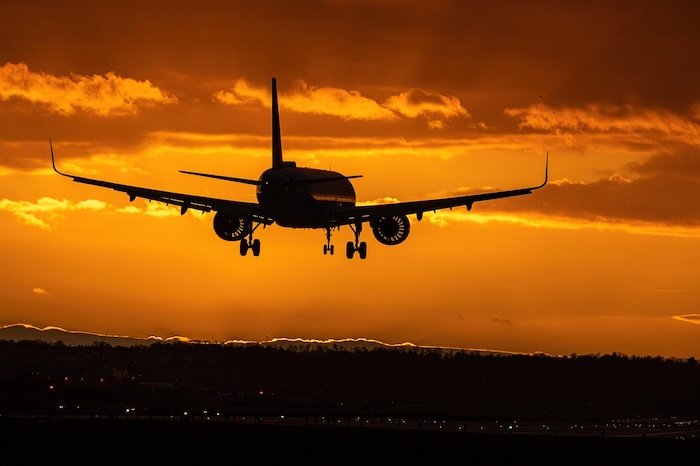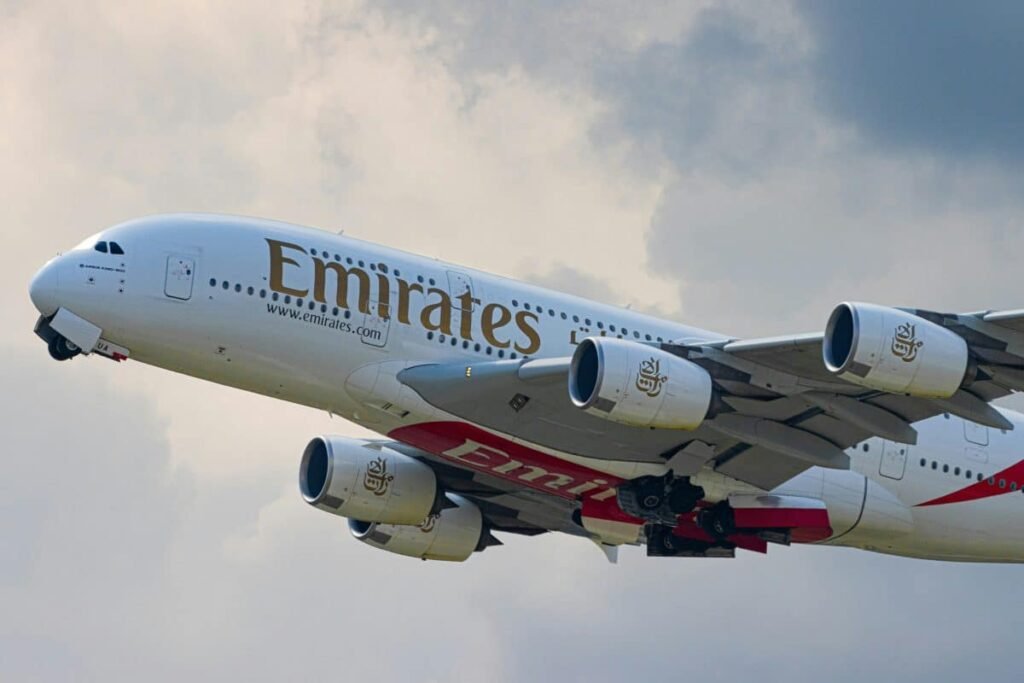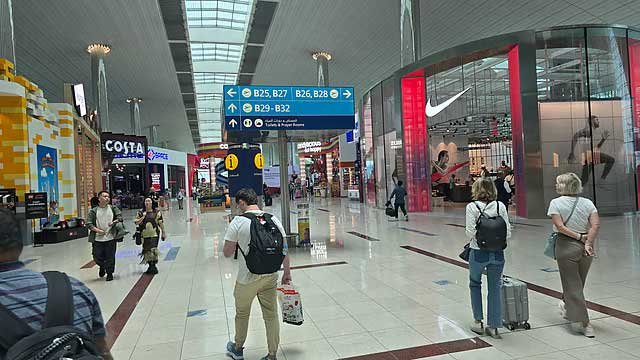After a night of uncertainty and heightened anxiety, the Gulf skies have reopened, offering a cautious sigh of relief for both travellers and the aviation industry. On June 23, a chain of airspace closures rippled across the region, from Qatar to Bahrain and Kuwait, in response to a tense geopolitical episode that saw Iran launch missile strikes targeting a US military installation in Qatar.
The sudden closure sent shockwaves through travel plans, with many passengers stranded in airports and flights suspended without clear answers. But within hours, a swift and coordinated effort by Gulf aviation authorities brought operations back online, showing the region’s resilience and capacity to handle security challenges while prioritising the safety of its people.
Dubai Airports Restores Full Operations

Dubai, often hailed as the heart of Middle Eastern aviation, quickly found itself at the centre of this crisis. As Iran’s retaliation made headlines and security concerns escalated, Dubai Airports made the difficult but necessary decision to temporarily halt flight operations. This move, though sudden, was a preventive step to avoid any risk to passenger aircraft and flight crews navigating potentially hostile airspace.
By the morning of June 24, the reassuring message came from Dubai Airports: full operations had resumed. Flights were back in the air, terminals buzzed with activity once again, and stranded passengers began boarding their rescheduled journeys. The rapid response and professional management of the situation earned praise from both travellers and the aviation community.

The Dubai Media Office acknowledged the importance of ensuring traveller safety while also moving quickly to restore normalcy. While the city’s two major airports, Dubai International (DXB) and Al Maktoum International (DWC), worked closely with airlines to recover from the disruption, passengers were advised to check directly with their carriers for real-time updates.
A United Response Across Gulf Nations
What stood out during this episode was the impressive unity and coordination among Gulf nations. Qatar, Bahrain, and Kuwait acted decisively, closing their airspaces in a show of collective responsibility. These closures, though disruptive, were necessary given the proximity to conflict zones and the unpredictability of the situation.
The collaboration between regional aviation authorities demonstrated a shared commitment to protecting passengers, airline staff, and vital aviation infrastructure. Such regional cooperation in the face of crisis offers a strong message of solidarity, not just to residents of the Gulf but to the world.
Within hours, the same authorities were able to lift restrictions, having assessed the security situation carefully. Their decision to reopen airspace highlights the balance Gulf states must constantly maintain between remaining open and connected to the world while guarding against fast-moving geopolitical threats.

Travellers Share Stories Of The Unexpected Halt
For many passengers, what started as an ordinary journey turned into a night of uncertainty. From business travellers en route to important meetings to families embarking on vacations, countless stories emerged from those caught in the temporary suspension.
Rohan Mehta, a Dubai-based marketing executive heading to Doha for a conference, shared how his flight was minutes from boarding when the announcement came through. “The screens suddenly showed ‘Delayed’ for all Qatar flights, and the staff asked us to stay calm. We didn’t know then what was happening, but within an hour, the situation started unfolding on social media. It was tense, but everyone handled it well.”
Similarly, Layla Hassan, a Bahraini student flying back home from university in the UK, recounted how her connection through Dubai was disrupted. “I was scared when I heard about the strikes, but the airport staff were so kind and made sure we were safe. It was stressful, but the next morning, everything started moving again.”
These personal accounts capture not just the anxiety such moments bring but also the resilience and empathy that emerge in times of uncertainty.
Heightened Vigilance In An Unpredictable Climate
Even as operations have resumed, the underlying security risks that prompted the closures remain a reality. Regional experts have pointed out that while the immediate threat has receded, the broader tensions between Iran and the US — and their ripple effects on the Gulf — are far from resolved.
Aviation authorities have maintained a heightened state of vigilance, closely monitoring airspace activity, military developments, and diplomatic exchanges. While the swift reopening signals confidence in operational safety, authorities are well aware that conditions in the region can shift rapidly.
This awareness means that airlines and airports remain on standby, with protocols in place for any sudden developments. Passengers are also urged to stay connected to their airlines for the latest updates and travel advisories, a reminder of how the modern traveller must navigate not just flight schedules but also geopolitical uncertainties.
An Industry Built On Resilience
The aviation industry in the Gulf has faced numerous challenges over the years — from global pandemics and economic downturns to regional conflicts. Yet, time and again, it has demonstrated remarkable resilience and adaptability.
Dubai International Airport, for instance, has consistently ranked among the world’s busiest airports, serving millions of passengers annually while navigating the complexities of operating in a volatile region. Its ability to swiftly halt and resume operations with minimal incident is a testament to years of investment in security, crisis management, and operational excellence.
Similarly, Qatar Airways and other Gulf carriers have built reputations not just for luxury but for reliability, even in unpredictable circumstances. This recent episode adds another chapter to their story of endurance, showing that while challenges are inevitable, the region’s aviation players are equipped to face them head-on.
Passengers Advised To Stay Cautious
Despite the positive news of resumed flights and reopened airspace, officials continue to advise travellers to remain cautious. Given the fluidity of the situation, schedules may still see some adjustments in the coming days.
Passengers with upcoming travel plans through Gulf airports, especially routes near affected regions, are encouraged to regularly check flight status updates, travel advisories, and local news. Most airlines have issued flexible rebooking and refund policies in light of the recent disruptions, offering passengers additional peace of mind.
The emphasis remains on maintaining safety without compromising essential connectivity, a delicate balance that Gulf states have historically managed with commendable efficiency.
Looking Ahead: Stability Amid Uncertainty
While the dust appears to be settling for now, the broader geopolitical tensions underlying this episode are unlikely to disappear overnight. The US-Iran dynamic remains strained, and as long as military operations continue in the region, the risk of further incidents lingers.
However, the swift and organised response from Gulf aviation authorities and airlines offers hope that the region can navigate such challenges with minimal disruption. The reopening of airspace, the return of flights, and the stories of passengers safely reaching their destinations stand as a testament to human resilience, collective action, and the determination to keep moving forward even in uncertain times.

A Moment To Reflect
For passengers, aviation workers, and regional governments alike, the events of June 23 serve as a reminder of the fragile nature of peace and the importance of preparation. In a region where skies are often the fastest route connecting East and West, maintaining security without halting progress is an ongoing task.
This episode also highlights the role of ordinary people — airport staff ensuring order, pilots navigating carefully, and passengers showing patience in the face of delays. It’s a story not just of military strikes and political moves, but of everyday human courage and solidarity.
As flights once again take off against the brilliant Gulf sunsets, the region looks ahead with cautious optimism. The skies are open, the runways are busy, and life continues — proving once again that even in the face of sudden crises, the human spirit finds a way to rise.
Do follow UAE Stories on Instagram
Bold Airspace Shutdown Sparks Worldwide Flight Re‑Routing Breakthroug













